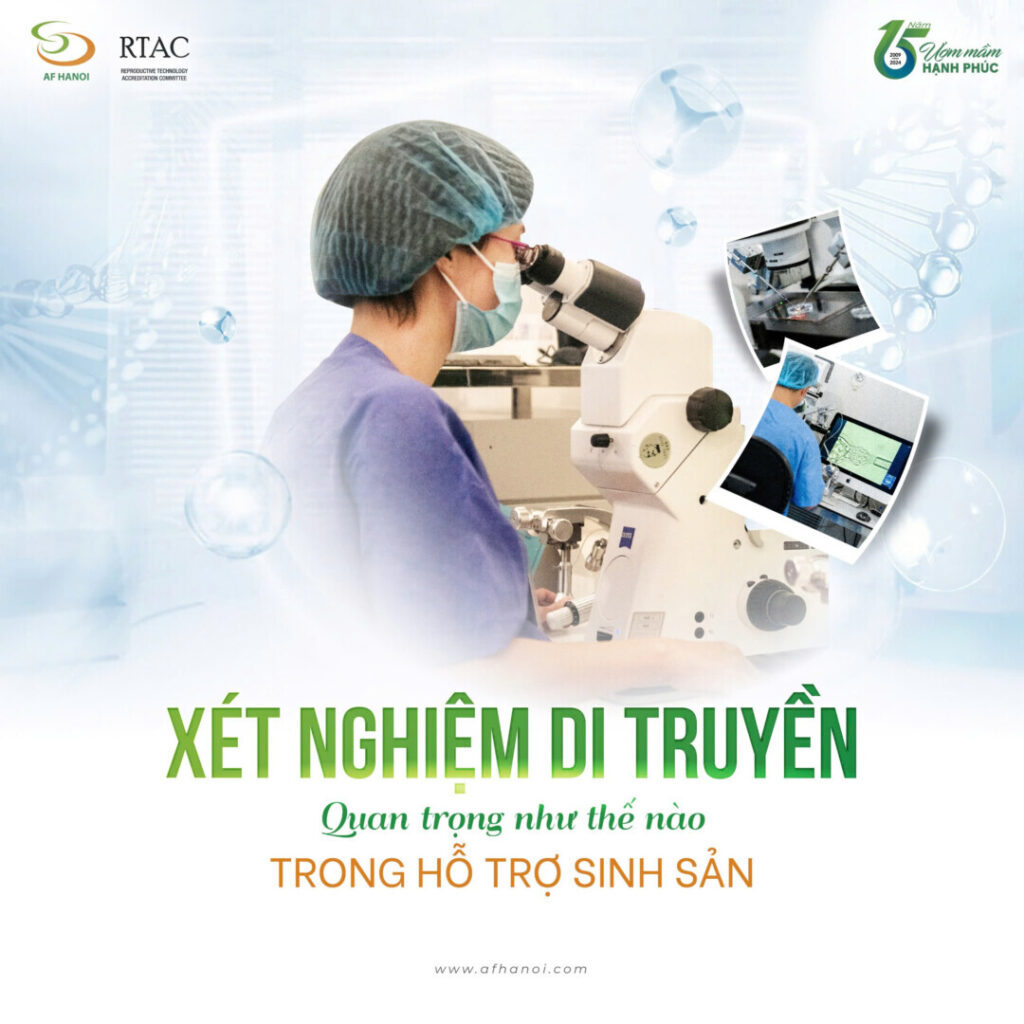
Genetic testing plays a crucial role in assisted reproductive treatment as it helps couples identify and address genetic abnormalities early, thereby increasing the chances of having a healthy and safe pregnancy. With modern medical foundations and technological advancements, the close relationship between genetics and reproductive support is increasingly affirmed.
- The Connection Between Genetics and Assisted Reproduction
- Genetics and assisted reproduction are two closely related factors throughout the process, from diagnosing infertility causes, repeated miscarriages, to preventing genetic disorders in future generations. Genetics is involved in most stages of assisted reproduction, from screening, diagnosing genetic abnormalities in the parents and embryos, to optimizing infertility treatments.
- The combination of genetics and modern assisted reproductive techniques has helped thousands of infertile families realize their dream of parenthood, while ensuring healthy children and reducing risks.
- Application of Advanced Genetic Technology Modern genetic technology offers many outstanding advantages:
- Embryo Screening: Preimplantation Genetic Testing (PGT) helps reduce the risk of transferring embryos with chromosomal abnormalities, identifying genetic mutations that cause inherited diseases within families.
- Identifying Causes of Infertility: Genetic analysis clarifies issues like chromosomal abnormalities and gene mutation carriers, assisting in identifying the causes and solutions for unexplained infertility.
- Prevention for Future Generations: Tests like PGT-M (Preimplantation Genetic Testing for Monogenic Disorders) and PGT-SR (Preimplantation Genetic Testing for Structural Rearrangements) ensure the reduction of the risk of passing on genetic disorders to offspring.
- Optimizing Cost and Treatment Time The development of technology, combined with flexible testing methods, helps:
- Increase the accuracy and effectiveness of diagnoses.
- Broaden the spectrum of detectable diseases, from common to rare genetic disorders.
- Shorten the turnaround time for results, reduce costs, and optimize the treatment process for patients.
- Supporting Fertility Improvement By detecting genetic factors affecting egg, sperm, and embryo quality, doctors can develop tailored treatment plans. This not only increases the success rate of pregnancy but also reduces the risks of IVF failure or other complications.
- Bringing Hope to Infertile Families
- Thanks to a deep understanding of the pathogenesis mechanisms and advancements in science and technology, genetic testing has opened doors of hope for many infertile families. Applying these tests not only helps couples overcome challenges but also provides them with a strong belief in the health and future of their children.
Genetic testing is a breakthrough in the field of assisted reproduction, connecting modern science with the journey to parenthood. It is not only a diagnostic tool but also an optimal solution to enhance treatment processes, bringing remarkable results for both doctors and patients.

